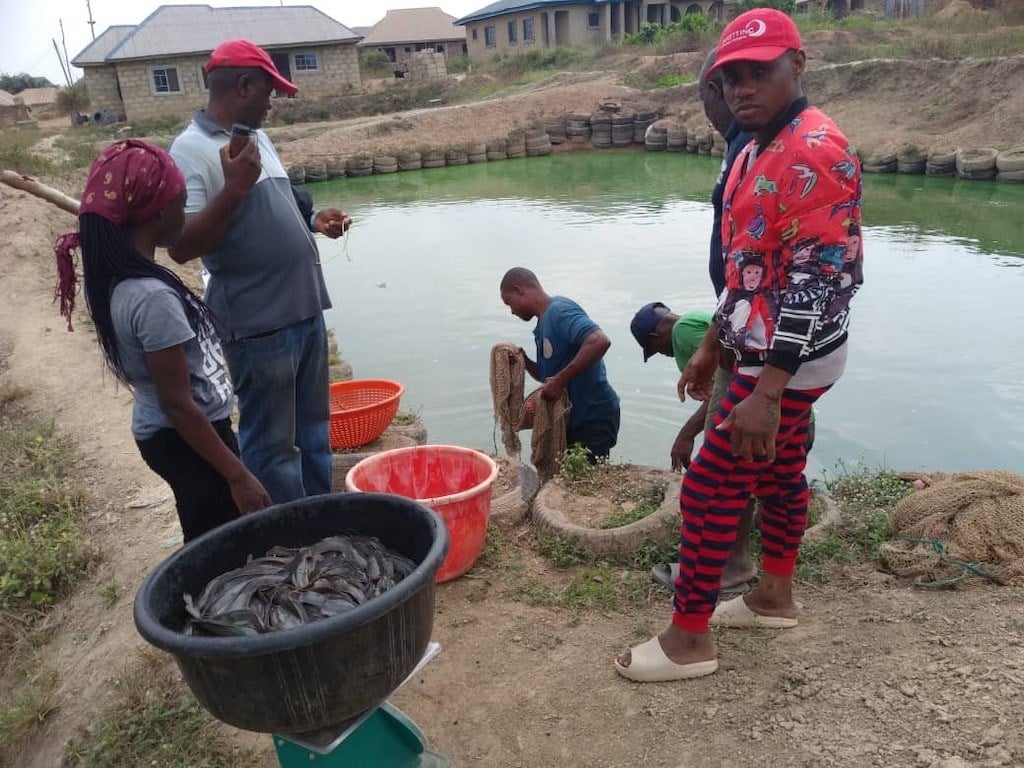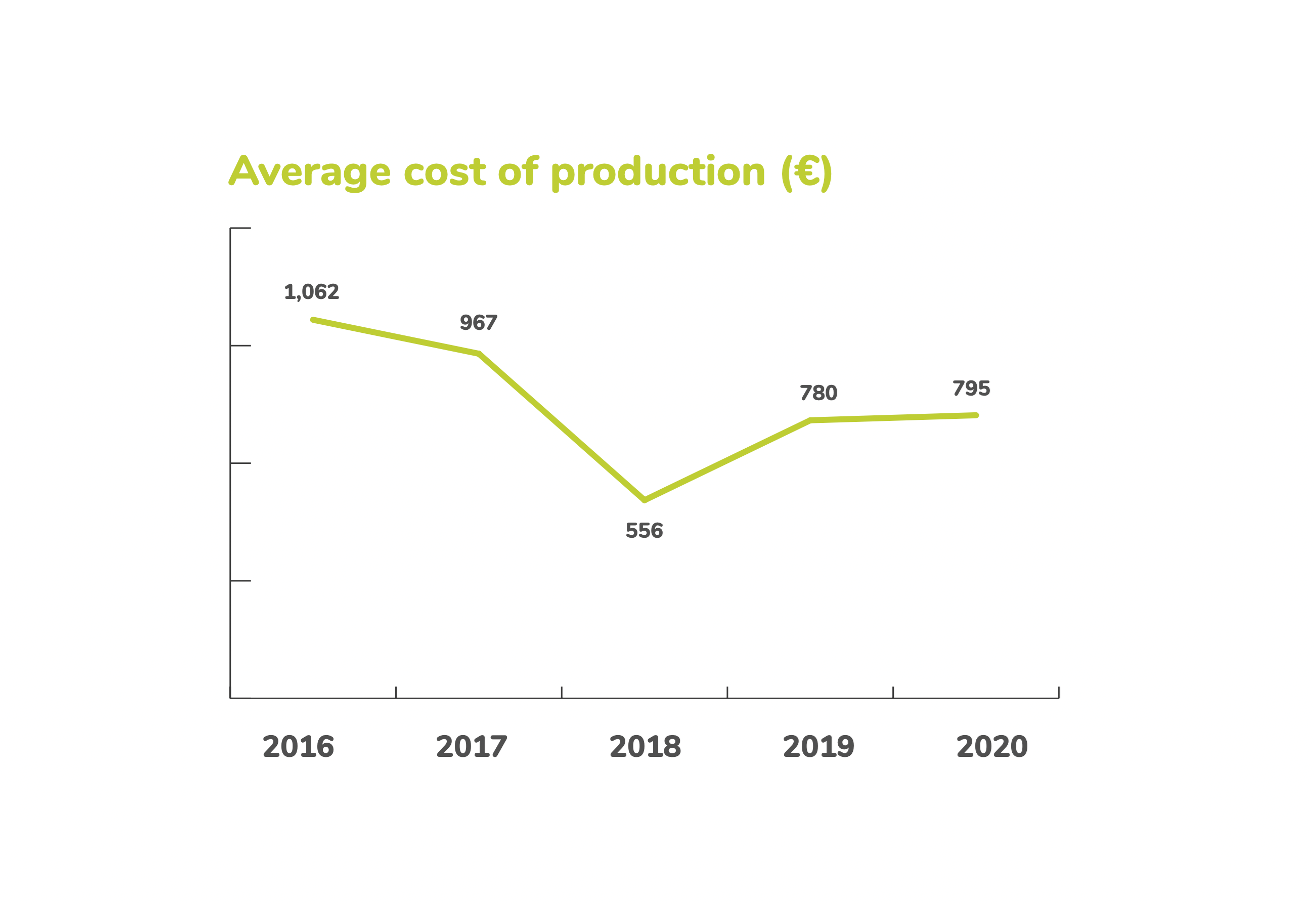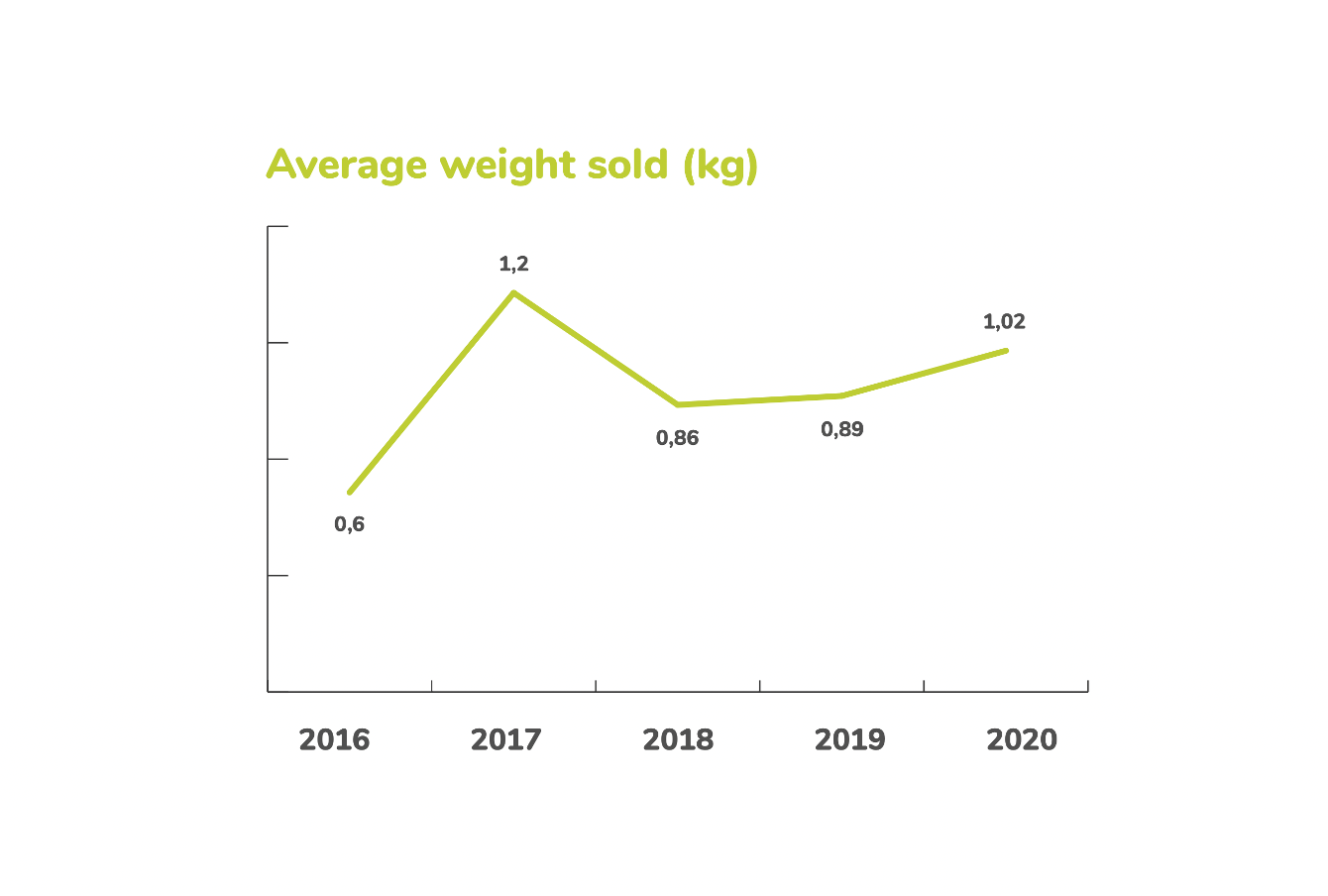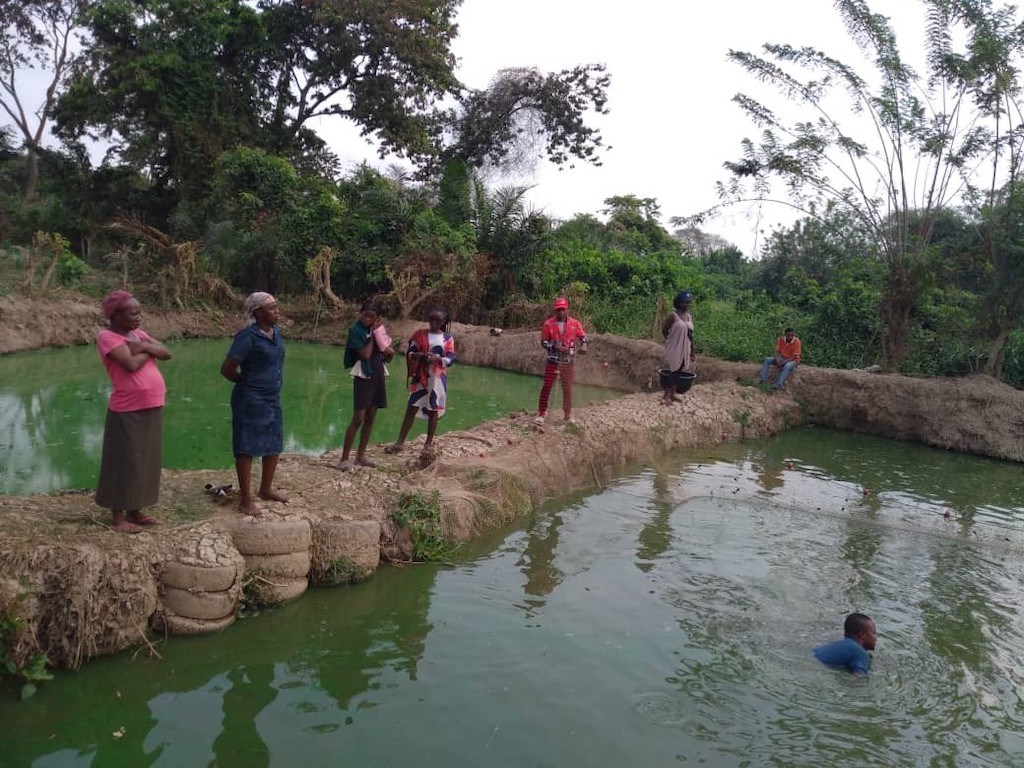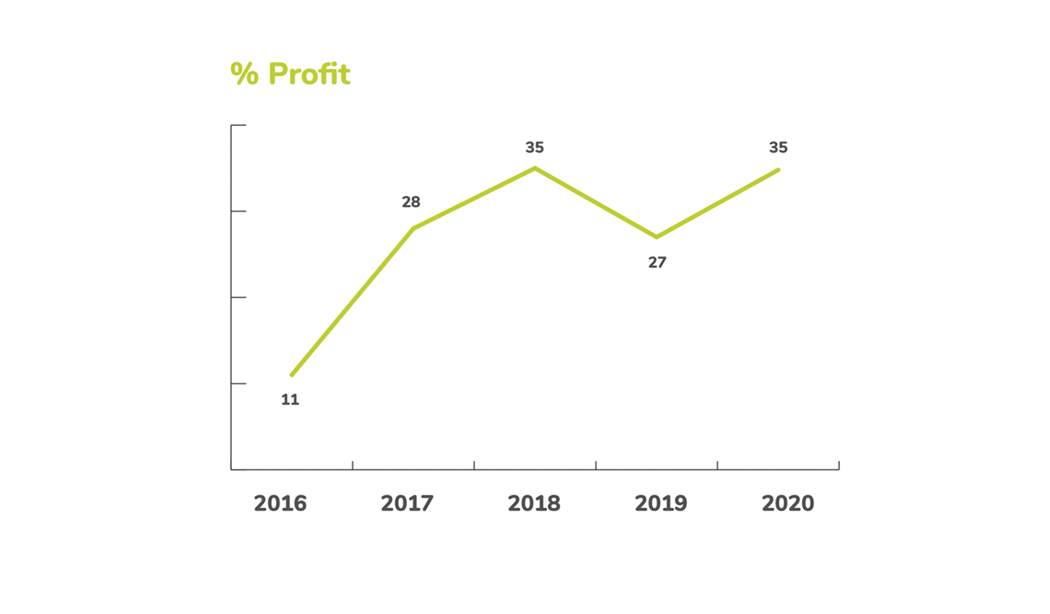In January 2020, the fourth phase of the CSP commenced with a target of an additional 233 catfish farmers to the existing 467 project beneficiaries. At the end of the year, 175 new beneficiaries were added, totalling 642 catfishfarmers, comprising 519 males and 123 females in 35 catfish farmers’ group. Some 264 of the farmers accessed247,275kg of feed through the revolving feed input support between January-December 2020.
Through frequent capacity development programmes on group dynamics and Strengthening, Savings, Credit and Cooperative Management for farmers, there was a clear improvement in sales and income of project beneficiaries. Although, the COVID-19 pandemic affected farmers’ sales, 47.96% of the existing catfish farmers and 22.8% of the new farmers increased their income from catfish production and marketing by 34.8%.
Going by the objective of encouraging sustainable aquaculture system, catfish farmers were frequently trained on best management practices, while implementation was ensured through constant monitoring and technical advisory services. Some 69% of the target small-scale farmers adopted these innovative best aquaculture practices and there was anaverage survival rate of 93.5% of catfish produced by participating fish farmers.
All of these contributed to an average income of EUR 1,200 per participating catfish farmers in 2020.
